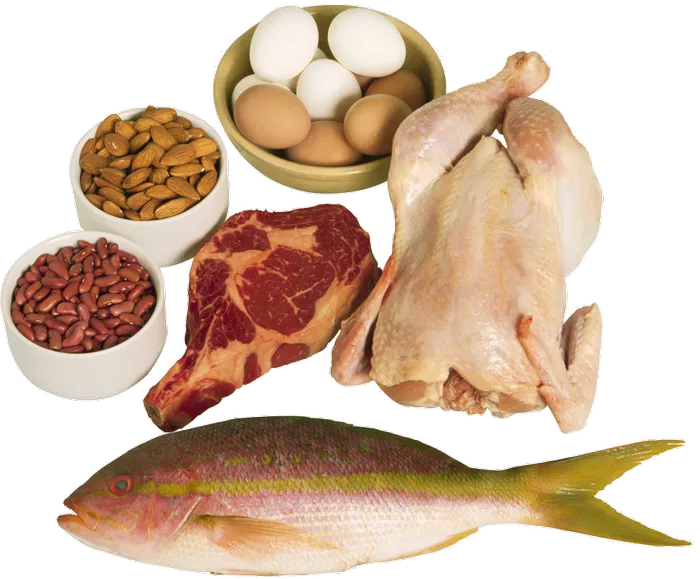In recent years, high protein, low carbohydrate diets have gained popularity for their potential benefits in weight management, muscle building, and overall health. These diets emphasize consuming foods rich in protein while minimizing carbohydrate intake, which can help regulate blood sugar levels, promote satiety, and support muscle growth and repair. In this article, we will explore a variety of high protein, low carb foods to help you make informed dietary choices.
Understanding High Protein, Low Carb Diets
Before delving into specific foods, it’s essential to understand the principles behind high protein, low carb diets. These diets typically involve reducing carbohydrate intake while increasing protein consumption. By limiting carbs, the body is forced to rely on fat stores for energy, a state known as ketosis. This can lead to weight loss and improved metabolic health for some individuals.
Protein is essential for various bodily functions, including muscle repair, immune function, and hormone production. Consuming adequate protein is particularly important for individuals engaged in regular exercise or strength training, as it supports muscle growth and recovery.
When following a high protein, low carb diet, it’s important to choose foods that are not only rich in protein but also low in carbohydrates to help maintain ketosis and achieve dietary goals.
High Protein, Low Carb Foods
Lean Meats and Poultry: Lean meats such as chicken breast, turkey breast, and lean cuts of beef and pork are excellent sources of protein with minimal carbohydrate content. These meats are also rich in essential nutrients such as iron, zinc, and B vitamins.
Fish and Seafood: Fish and seafood are low in carbohydrates and packed with protein and healthy fats. Salmon, tuna, trout, and shrimp are particularly good choices. Fatty fish like salmon also provide omega-3 fatty acids, which have been linked to numerous health benefits, including heart health and brain function.
Eggs: Eggs are a versatile and nutritious food that is high in protein and low in carbs. They also contain essential vitamins and minerals, including vitamin D, B vitamins, and choline. Incorporating eggs into your diet can help increase protein intake while keeping carb levels in check.
Greek Yogurt: Greek yogurt is a creamy and delicious dairy product that is high in protein and low in carbohydrates. It is also rich in calcium and probiotics, which support digestive health. Opt for plain, unsweetened Greek yogurt to avoid added sugars and maximize protein content.
Cottage Cheese: Cottage cheese is another dairy product that is rich in protein and low in carbs. It can be enjoyed on its own or used as a topping or ingredient in various dishes. Cottage cheese is also a good source of calcium and other essential nutrients.
Tofu and Tempeh: Tofu and tempeh are plant-based protein sources that are low in carbohydrates and suitable for vegetarian and vegan diets. Tofu, made from soybeans, is versatile and can be used in a variety of dishes, while tempeh, made from fermented soybeans, has a nutty flavor and firm texture.
Nuts and Seeds: While nuts and seeds contain some carbohydrates, they are also rich in protein, healthy fats, and fiber. Almonds, peanuts, walnuts, and chia seeds are excellent choices for a high protein, low carb snack or addition to meals.
Cheese: Cheese is a flavorful and satisfying food that is low in carbohydrates and high in protein and fat. Opt for varieties such as cheddar, mozzarella, and Swiss cheese, which have minimal lactose content and can be enjoyed in moderation on a low carb diet.
Protein Powder: Protein powders, such as whey protein, casein protein, and plant-based protein powders, are convenient options for increasing protein intake without significantly increasing carbohydrate intake. They can be added to smoothies, shakes, or baked goods to boost protein content.
Vegetables: While most vegetables contain carbohydrates, some are lower in carbs and can be included in a high protein, low carb diet. Leafy greens like spinach, kale, and arugula are particularly low in carbs and high in nutrients. Other low carb options include broccoli, cauliflower, and bell peppers.
Tips for Incorporating High Protein, Low Carb Foods
1. Plan your meals ahead of time to ensure you have plenty of high protein, low carb options on hand.
2. Experiment with different recipes and cooking methods to keep meals exciting and flavorful.
3. Be mindful of portion sizes, especially with higher calorie foods like nuts and cheese.
4. Stay hydrated and drink plenty of water throughout the day to support digestion and overall health.
5. Listen to your body and adjust your diet as needed to meet your individual nutritional needs and goals.
Conclusion
High protein, low carb diets can be an effective approach for weight management, muscle building, and overall health. By incorporating a variety of protein-rich foods while minimizing carbohydrate intake, individuals can support their dietary goals and achieve better health outcomes. Whether you’re following a specific diet plan or simply looking to make healthier food choices, incorporating high protein, low carb foods into your diet can provide numerous benefits for your body and well-being.
[inline_related_posts title=”You Might Be Interested In” title_align=”left” style=”list” number=”6″ align=”none” ids=”7780,7710,7707″ by=”categories” orderby=”rand” order=”DESC” hide_thumb=”no” thumb_right=”no” views=”no” date=”yes” grid_columns=”2″ post_type=”” tax=””]































